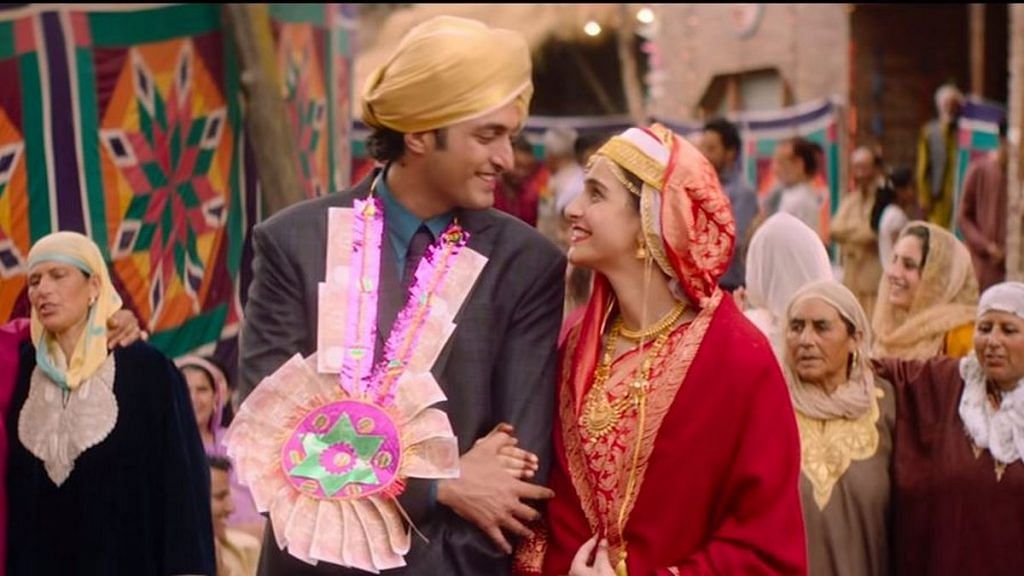Where do you go when you’re attacked in your home, the safest of places in the world? What do you do when your own state rejects you and nobody intervenes? How do you deal with trauma that promises to haunt generations to come? These questions weigh heavy on your mind as you watch the heartbreakingly beautiful Shikara.
Written, produced and directed by Vidhu Vinod Chopra, Shikara tells a love story set during the horrific exodus of Kashmiri Pandits in 1990. Shiv Kumar and Shanti Dhar (played by newcomers Aadil Khan and Sadia) are a newly married Kashmiri Pandit couple who live in Srinagar, in a house they call Shikara. At the end of 1989, when Shiv’s friend’s father is killed in an encounter between the Indian Army and militants, the Dhars’ happy life is turned upside down. A few weeks later, Jammu & Kashmir is plunged into conflict once again, this time with Islamist militants baying for the blood of Kashmiri Hindus. Shiv and Shanti are forced out of Shikara with their family and flee to Jammu as refugees. The next 30 years are spent living in a refugee camp, writing, teaching, fighting for justice and hoping that, one day, they will return to Shikara.
The movie takes you right into the pain and the trauma of being torn away from your home. What it does not do is take you into the political realities of it. The Kashmiri Pandit exodus is not the story, it is a prop, used as the background for what is essentially a love story. While it is a beautifully told haunting love story, it is not a political drama or the ‘untold story of Kashmiri Pandits’ that it claims to be.
Barring a couple of scenes of political speeches, houses burning, a few people being shot, and one rather lame interaction between Shiva and a militant, Shikara pointedly stays away from the politics. It has serves a smattering of the Hindu-Muslim conflict but includes no real talk of the governments, militancy or violence at the time. In fact, Chopra takes the couple far away from that reality and focuses on their story of survival and love.
If taken at face value — a love story — the film is a great watch. It is painful and hopeful in all the right parts and beautifully shows the power of love in times of strife. The lead actors, especially Sadia, do a good job, inviting you into Shiv and Shanti’s relationship as if you were part of it all along. They display subtlety where it is required — in scenes of shock and sadness — and passion in scenes of fear and happiness.
What also does disappoint a little is the music of the film. The songs, written and composed by Sandesh Shandilya, Abhay Sopori and Rohit Kulkarni, try hard to be soulful and tug at your heartstrings. Instead, they fall short. The background score, on the other hand, done by A.R. Rahman and Qutub-E-Kripa, fits effortlessly into the scenes and helps build the mood of the film.
Shikara will make your mourn for Kashmir and Kashmiris, but only for a while. It is, essentially, the story of two people who just happen to be Kashmiri Pandits.
Also read: Haider to Shikara: Why Kashmiri Pandits are done being homeless and voiceless
